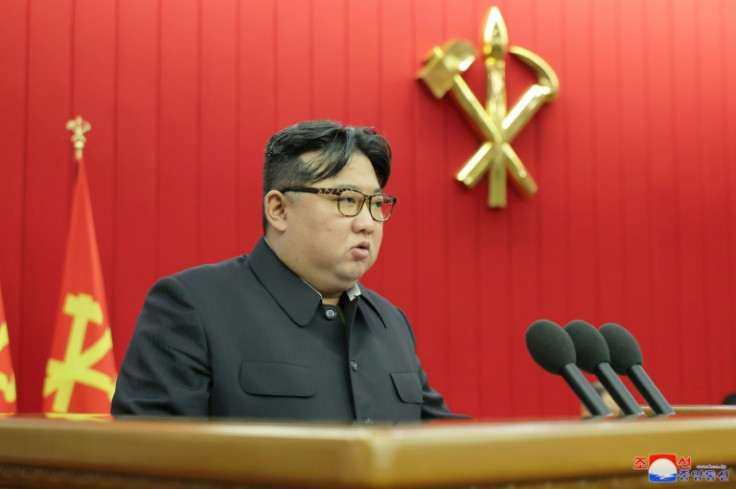
North Korean leader Kim Jong Un has overseen the country's first ever "nuclear trigger" drills, state-run KCNA news agency said Tuesday, which involved simulating a nuclear counterattack as a warning to enemies.
The drills showcased North Korea's "nuclear trigger" management system for the first time, the official Korean Central News Agency reported, adding this was the country's combined control system for its nuclear weapons.
The drill took place on Monday, according to the report. Seoul's military had earlier announced that the North had fired several short-range ballistic missiles that day, with Tokyo also confirming the launch.
Kim "guided a combined tactical drill simulating a nuclear counterattack involving super-large multiple rocket artillerymen," the report said.
The rockets "hit their island target" some 352 kilometres (219 miles) away, it continued, saying Kim had expressed "great satisfaction" over the result, which boosted "the Korean-style tactical nuclear strike".
The drill examined "the reliability of the system of command, management, control and operation of the whole nuclear force" and ensured the super-large multiple rocket units had "mastered" the ability to switch into nuclear counterattack mode, KCNA said.
KCNA said the drills were in response to a US-South Korean joint air drill, which runs from April 12 to April 26.
The US and South Korean air forces said the annual exercises would serve for "demonstrating lethality in the air domain, and enhancing their ability to deter, defend, and defeat any adversary."
Pyongyang claims it is "seriously threatened by the hostile forces' ceaseless military provocations" KCNA said Tuesday.
As a result, the North needs to "more overwhelmingly and more rapidly bolster up the strongest military muscle," it added.
The latest launch "is an exercise designed for a scenario showing how the Kim regime would respond to a surprise aerial bombing on Pyongyang by joint US-South Korea air forces," Han Kwon-hee of the Korea Association of Defence Industry Studies told AFP.
"The drill shows the possible response could involve retaliation by nuclear missiles at the South," he added.
Pyongyang declared itself an "irreversible" nuclear weapons state in 2022, outlining its right to conduct preemptive nuclear attacks.
The launch is the second in less than a week by Pyongyang, which on Friday tested a "super-large warhead" designed for a strategic cruise missile, state media said. Seoul's military confirmed it had detected cruise missile launches at the time.
The launches come after Pyongyang's ally Moscow in March used its United Nations Security Council veto to effectively end UN monitoring of sanctions violations on Kim's government for its nuclear and weapons programme.
The largely isolated country has recently bolstered military ties with Moscow, and this month it thanked Russia for its UN veto.
It has also ramped up testing, claiming in early April to have tested a new medium-to-long-range solid-fuel hypersonic missile.
Analysts have warned that North Korea could be testing cruise missiles ahead of sending them to Russia for use in Ukraine, with Washington and Seoul claiming Kim has already shipped weapons to Moscow, despite UN sanctions banning any such moves.
Seoul claims Pyongyang has sent around 7,000 containers of weapons to Moscow for use in Ukraine.
Last year, the North conducted a record number of missile tests in defiance of UN sanctions in place since 2006 and despite warnings from Washington and Seoul.




